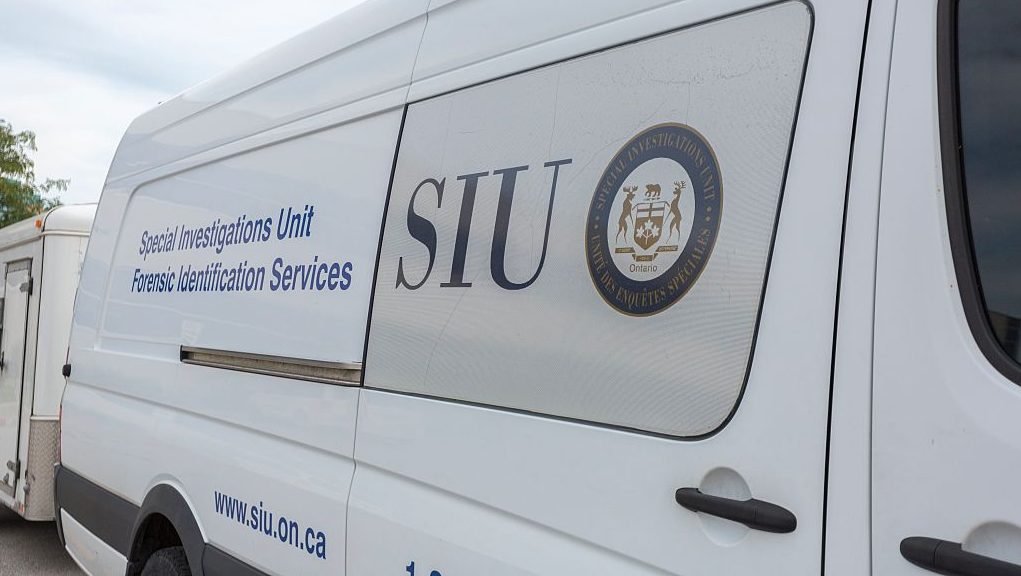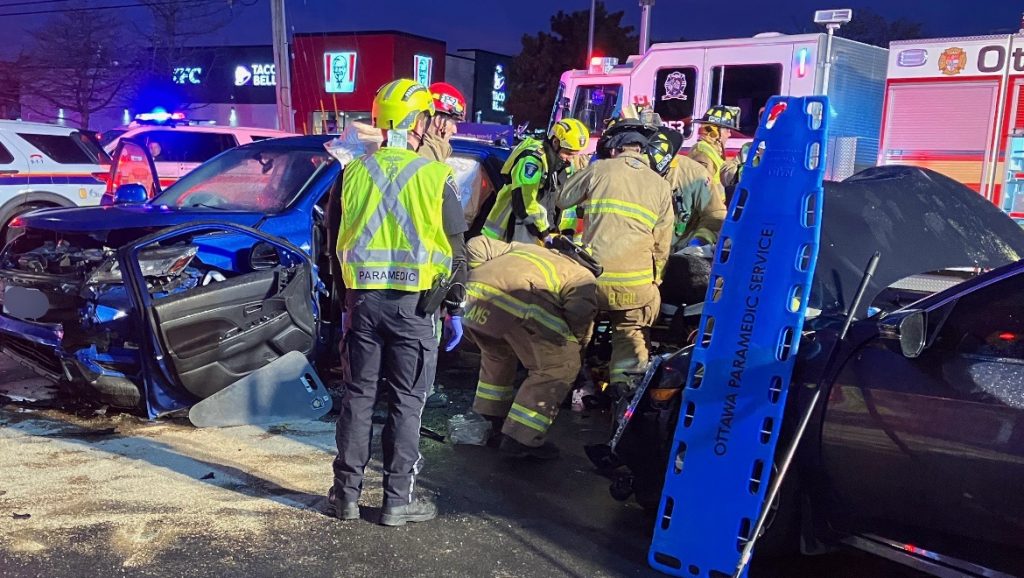Ethics of medically-assisted death questioned as some turn to it as an alternative to poverty
Posted Oct 15, 2022 10:15:00 AM.
As the eligibility criteria for medical assistance in dying (MAiD) is set to expand next year to include mental health disorders, many are questioning the current criteria and how some are being forced to apply, not because they want to die, but because they cannot afford to live.
MAiD officially became legal in Canada in 2016 under the requirement that death was reasonably foreseeable. The eligibility to apply expanded in March of 2022 to include people with disabilities or those suffering pain even if they are not close to death.
CityNews spoke with a 54-year-old St. Catharines man, Amir Farsoud, who has applied for MAID as an alternative if he should become homeless.
Farsoud is currently on Ontario Disability Support Payments and can’t afford to pay anymore in rent. The rooming house he lives in is for sale, instead of becoming homeless, he wants to have the option of MAiD.
Because he suffers from debilitating back pain, Farsoud meets the eligibility criteria for MAiD.
“I don’t want to die but I don’t want to be homeless more than I don’t want to die,” shared Farsoud.
Farsoud shared he believes it’s backwards that people like him are currently in this position and have to think about making this choice.
“I think we actually have the wherewithal for that not to be an issue and that we are choosing to not help the most vulnerable members of the society is tragic,” shared Farsoud.
The United Nations cautioned against expanding the criteria of MAiD for this very reason.
In a report released in Jan of 2021, UN experts said that when “life-ending interventions are normalized for people who are not terminally ill or suffering at the end of their lives, such legislative provisions tend to rest on – or draw strength from – ableist assumptions about the inherent ‘quality of life’ or ‘worth’ of the life of a person with a disability.”
And in a letter sent directly to the Government of Canada ahead of the change in MAiD legislation, the UN said it was concerned with the expanded access, specifically citing concern with a circumstance like Farsoud faces.
“It is not beyond possibility that, if offered an expanded right as per Bill C-7, persons with disabilities may decide to end their lives because of broader social factors such as loneliness, social isolation, and lack of access to quality social services,” read the note.
Helen Long, CEO of Dying with Dignity, a charity for end of life rights, said while she believes it’s important for someone to have the right to choose assisted death, it shouldn’t be because they can’t afford to live.
She sees the issue of allowing those with a disability to choose assisted death and those who are choosing assisted death because of a lack of social supports as two separate issues.
“I don’t think we can deny everyone with a disability from choosing an assisted death because some are not living with the supports they need,” said Long. “People who fully meet the eligibility criteria, whose suffering is intolerable, who have autonomy and mental capacity to make a decision should be able to choose MAiD and end of life.”
“Lack of social supports is obviously a huge concern in our country. And the government needs to do more to support those individuals. No one should be applying for MAiD because they can’t get the supports, they need.”
She added the legislation change to allow for those of whom death is not foreseeable did not change the eligibility criteria.
“A person’s suffering has to be caused by their disease and illness or their disability and that hasn’t changed … No one should be applying for MAiD because they can’t get the supports they need.”
Professor of Law and Bioethics Trudo Lemmens said he was firmly against the expansion of the MAID criteria to include those whose death was not foreseeable.
“We have now a law that singles out people and sends the message basically that disability is an understandable reason to end your life, and which sends a message that the quality of life and the value of continuing to live with disabilities is less than for a person who doesn’t have a disability.”
Lemmens said physicians who sign off on MAiD, knowing social supports is a motivating factor of choosing to die, are contributing to this.
“I think they should realize that by signing off on requests for medical assistance and dying that are driven by poverty, and by lack of social support, intertwined with disability that they’re actually confirming or contributing to a system that normalizes the ending of life of persons for reasons of disability intertwined with poverty,” explained Lemmens.
The federal government tells CityNews MAiD was “neither in theory or in practice, intended to be an option for individuals whose overarching concern or suffering arises from lack of or perceived lack of adequate social supports.”
But they acknowledged that a person may say the absence of a particular social service is motivating their request for MAiD.
The government said there are safeguards in place that legally require a health care practitioner to inform the patient of means available to relieve their suffering including disability support services.
“It is highly unlikely that a person would be assessed as eligible for MAiD by two independent practitioners if the assessors had reason to believe that the person’s grievous and irremediable medical condition and associated suffering caused by that condition could be relieved on a sustained basis by access to reasonable and available treatment and social services,” read their statement.
Dying with Dignity, Long said, has been focused on amplifying the voices of the concerns of those in the disability community in relation to the MAiD legislation.
“We’re going to do so because everyone in Canada first and foremost should be able to live their life. MAID is about relieving intolerable suffering. For people who are making that choice … It’s not about a lack of social supports, and that’s something that the government does need to step up and address.”
She said the idea people have resort to MAID for this reason is “shameful.”
“The fact that people are feeling compelled to apply for MAiD or to even ask about MAID because they can’t get the basic fundamentals to live a life is shameful, as a country, as a government,” expressed Long. “We should be ashamed and we should do more.”
Dr. Kerry Bowman, a bioethicist from the University of Toronto, agrees that this is not what MAiD was designed for.
“Cases like [Farsoud’s] are emerging with increasing frequency across the country,” Dr. Bowman said. “We were unbelievably naive as a nation to think that vulnerability, disability, poverty that we could parcel that off and it wasn’t going to be a problem. It’s a huge problem.”
When asked about whether those with disabilities should have the right to choose MAiD, Dr. Bowman agreed. “But again, what does that say about a society when the right to choose is based on the fact that they’re unable to work? They’re living with disability and in pain and society is just allowing them to choose death and death becomes an option to cover. And this is really morally very, very wrong,” Bowman added.
Lemmens said the country has created a system where “ending of life is an easier and cheaper solution than actually investing in health care and social support.” He believes the government should be going back to the drawing board.
“The solution is in my view, to go back to the drawing table and to reconsider how we expanded medical assistance in dying law, certainly to improve healthcare services, to invest in health care services, mental health care services, housing, social housing, and adequate social support,” explained Lemmens.
And in the meantime, “Physicians should not participate in an affirmation of the ending of life as a as a normal response to economic and social injustice,” added Lemmens.
The Netherlands currently has monthly commissions that review troubling, assisted dying cases. Canada does not but they do release yearly statistics.
The latest update from Health Canada shows last year MAiD accounted for 3.3 per cent of all deaths in Canada or 10,064 people, that’s a 32.4 per cent increase over the year before.
Around 65 per cent of cases report cancer as the underlying reason and 81 per cent of requests resulted in the administration of MAiD with an average age of 76 years old.
Canada already has one of the most liberal MAID laws of those who offer assisted dying and continues to expand as mental health disorders will join the criteria on March 23, 2023.








